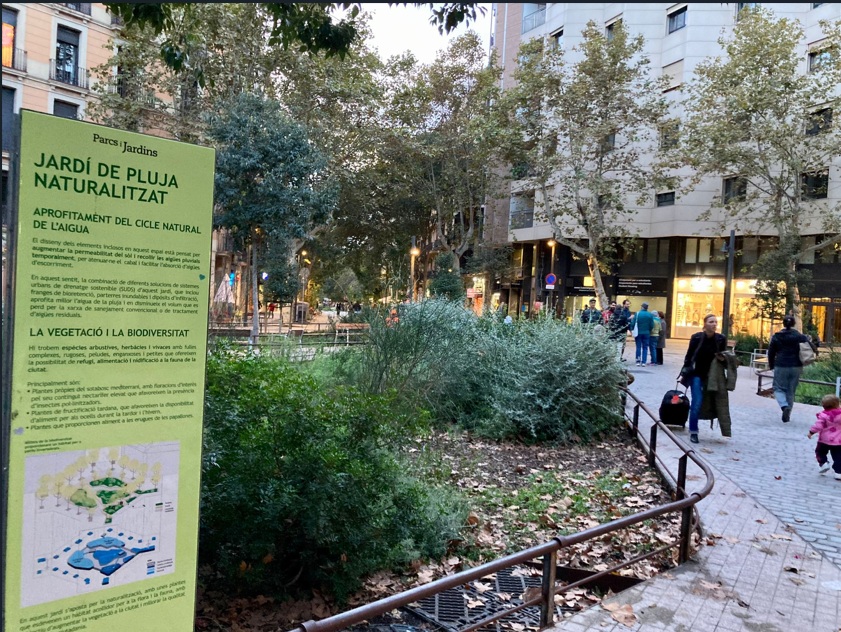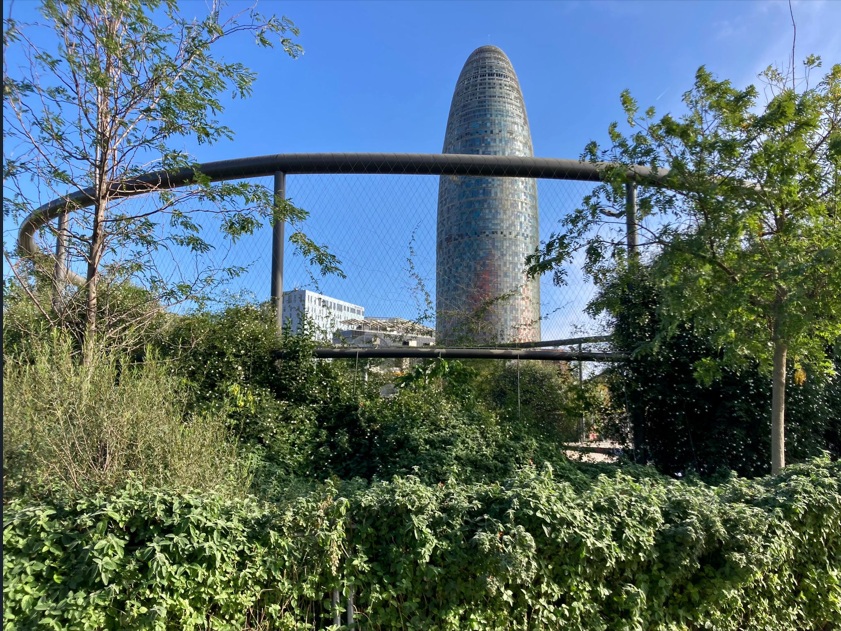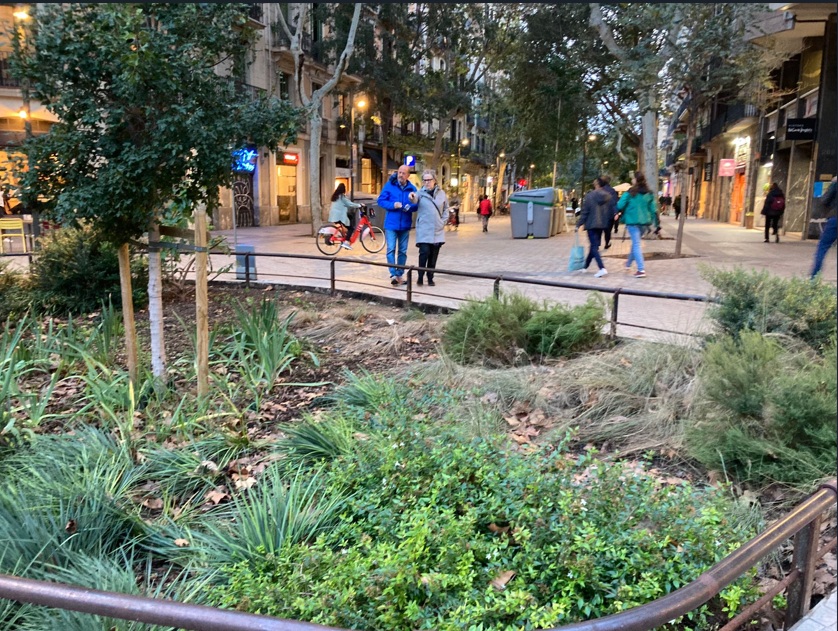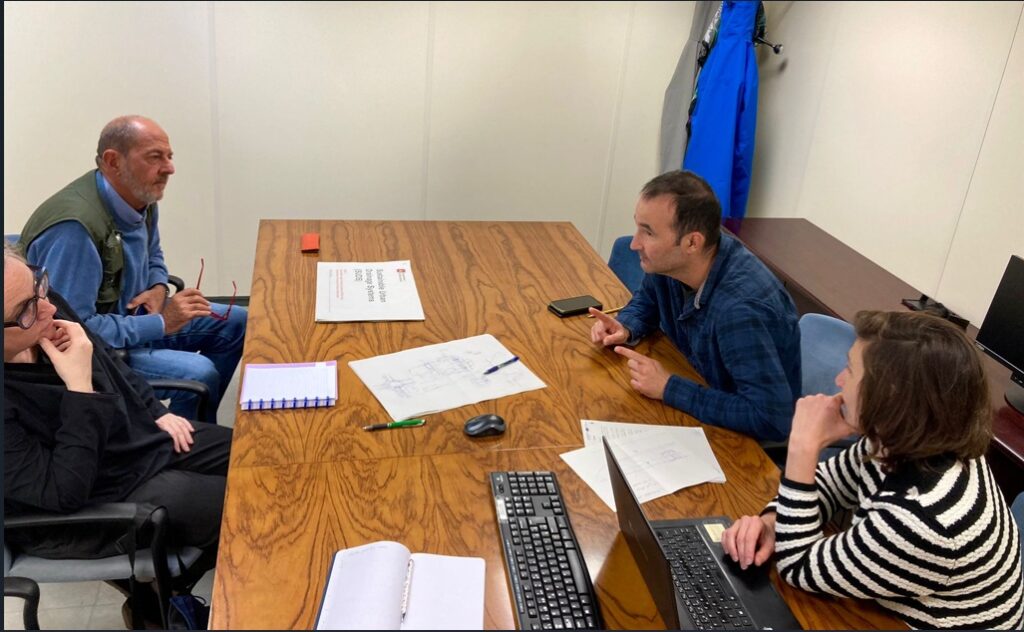MedCities, IRIDRA and SVI.MED had the opportunity to participate in a study visit in Barcelona. Organised within the framework of the URWAN project, the objective of this study visit was to explore the Nature Based Solutions (NBS) and other sustainable water management solutions carried out by the Municipality of Barcelona to tackle the typical challenges faced by many Mediterranean cities: drought and the resulting flash floods.
They had the pleasure of discussing with representatives from some of the municipal departments involved in the planning, implementation, management, and monitoring of nature-based solutions: BCASA-Barcelona Water cycle public company; the Urban Projects Direction of the Municipality and the Municipal Institute of Parks and Gardens.




One of the main challenges faced by Barcelona is to tackle urban flash floods, moving forward from grey infrastructure (water tanks). For that reason, a holistic answer to carry out preventive solutions, a true challenge as the municipality is organised by sectors, each one with its own objective, budget etc. This is why in the 2000s a commission was established to come up with a global strategy to implement a Sustainable Urban Drainage Systems (SUDS) that complies with national and European directives and Health agency requirements.
The idea is to find solutions among the different departments, to avoid problems of safety and health and environmental compliance, and to go further than the water management department to include other sectors such as mobility and infrastructure.
During the study visit, the three URWAN partners could see how the Municipality implements its SUDS solutions, taking into account the different typologies of soils, the need to integrate several urban services in a limited public space and to ensure a good quality of water. IRIDRA, SVI.MED and MedCities were able to see first-hand some of the solutions implemented, especially in the newly urbanised neighbourhood of La Marina del Prat Vermell, where SUDS is systematically present in the public areas; the urban renovations to create green axes (Consell de Cent street) or the different pedestrialisation initiatives in several neighbourhoods.
Aligning sectoral strategies to the city climate plan was one of the key points discussed. Awareness-raising was also an important point and social acceptance is still a difficult barrier to overcome: they have been working to change the social perception of SUDS, explaining that they are not dirty and how they contribute to increased biodiversity; focusing on the importance of water resistant and resilient solutions.
During the study visit, on November the 13th and 14th, the URWAN partners gathered inputs about the barriers encountered by the Municipality of Barcelona when implementing Nature Based Solutions (NBS) and other sustainable water management solutions, and how they overcame them – across several dimensions:
These inputs will serve as a basis to further examine barriers during a collaborative framework to co-create solutions: the first of the three URWAN Living Lab, that will take place in December 2024. The idea of these Living Labs is to bring together different sources of knowledge for better outcomes and increase transparency, with the final objective to develop joint strategies to address these key barriers and propose necessary adaptations of policies for the integration of NBS in the city development.
اشتركوا في النشرة الإخبارية الشهرية لتصلكم آخر الأخبار.

Nam porttitor blandit accumsan. Ut vel dictum sem, a pretium dui. In malesuada enim in dolor euismod
Nam porttitor blandit accumsan. Ut vel dictum sem, a pretium dui. In malesuada enim in dolor euismod

Nam porttitor blandit accumsan. Ut vel dictum sem, a pretium dui. In malesuada enim in dolor euismod

Nam porttitor blandit accumsan. Ut vel dictum sem, a pretium dui. In malesuada enim in dolor euismod
Nam porttitor blandit accumsan. Ut vel dictum sem, a pretium dui. In malesuada enim in dolor euismod

Nam porttitor blandit accumsan. Ut vel dictum sem, a pretium dui. In malesuada enim in dolor euismod